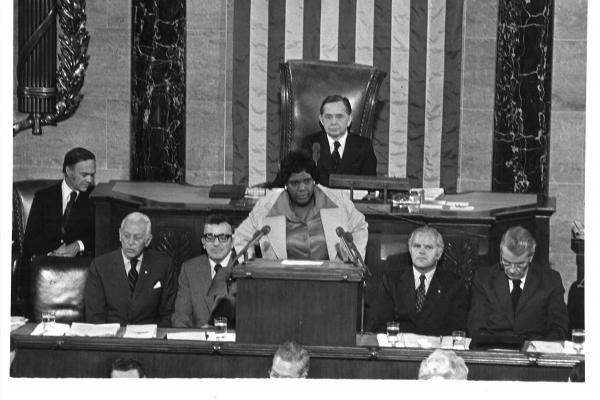The contributions of African Americans within American politics are often reduced or diluted. But there’s one group within the African American diaspora whose commitment, consistency, and dedication has especially not been elevated: black women.
“The most disrespected person in America is the black woman. The most unprotected person in America is the black woman. The most neglected person in America is the black woman,” Malcolm X said.
Even in 2020 with massive strides in representation locally and federally, black women are still “othered” and their contributions to American politics ignored.
Being black in America is a privilege — the privilege is possessing a heritage authentic to only our diaspora no matter how littered and pained our history may be. But this identity is coupled with unique challenges. As a black man, I did not understand the challenges wholly until I grew older. For black women, the challenges are similar but with added layers that exist because of our American, male driven, capitalistic based economic silo.
Still, black women have long stood as the bridge between despair and relief for American democracy and have long impacted the landscape of American politics for centuries.
This Women's History Month, amid the chaos, honoring the lives of black women is crucial.
From Dorothy Height, Barbara Jordan, to Shirley Chisholm, to name of few, each woman contributed to a reimagining of democracy amid social distress. They gave their lives to create a landscape that included and represented all people.
To know them is to know the impact black women had in the 20th-century American democracy and political framework. Untiringly, these three black women redefined what it meant to agitate, organize, and transform the U.S. Unpacking their legacies, we see Height’s intricate role in the civil rights movement and her ability to transform Delta Sigma Theta Sorority, Inc. and the National Council of Negro Women into epicenters of black women’s power and justice.
Barbara Jordan was more than was the first African American elected to the Texas Senate after Reconstruction and the first Southern African American woman elected to the United States House of Representatives. She was also pivotal in the fight for immigrant citizenship and rights
Shirley Chisholm wasn’t just a the first black woman elected to Congress; she was both the first woman and the first African American to run for the office of president. Hillary Clinton may have garnered great traction during both her presidential campaigns, but it was a black woman named Shirley who took her own chair to the table, knocked the door, broke the glass ceiling, and created the fathomable reality that a woman could and can be president of the U.S.
It's black women who nursed the children of their masters. It's black women who operated as midwives for generations, absent of licenses and government protections, safely and skillfully bringing forth lives. It's black women who raised their families and of those who oppressed them. It's black women who’ve constructed, framed, and taught their faith to men who prohibited them from entering pulpit's. It's black women who have stood as the conscience, ethos, morale, and soul of God amid crisis and calamity. And it's black women who have surged to serve in political office across the country to adequately represent America’s everchanging demographic. As womanist theologian the late Dr. Katie G. Cannon said, “do the work your soul must have.”
That’s what black women bring: a radical reimagination and envisioning of America.
And this radical tradition will not cease. Black women have been vessels of transformation and will continue to do the work despite the challenges that are thrown their way.
Got something to say about what you're reading? We value your feedback!







